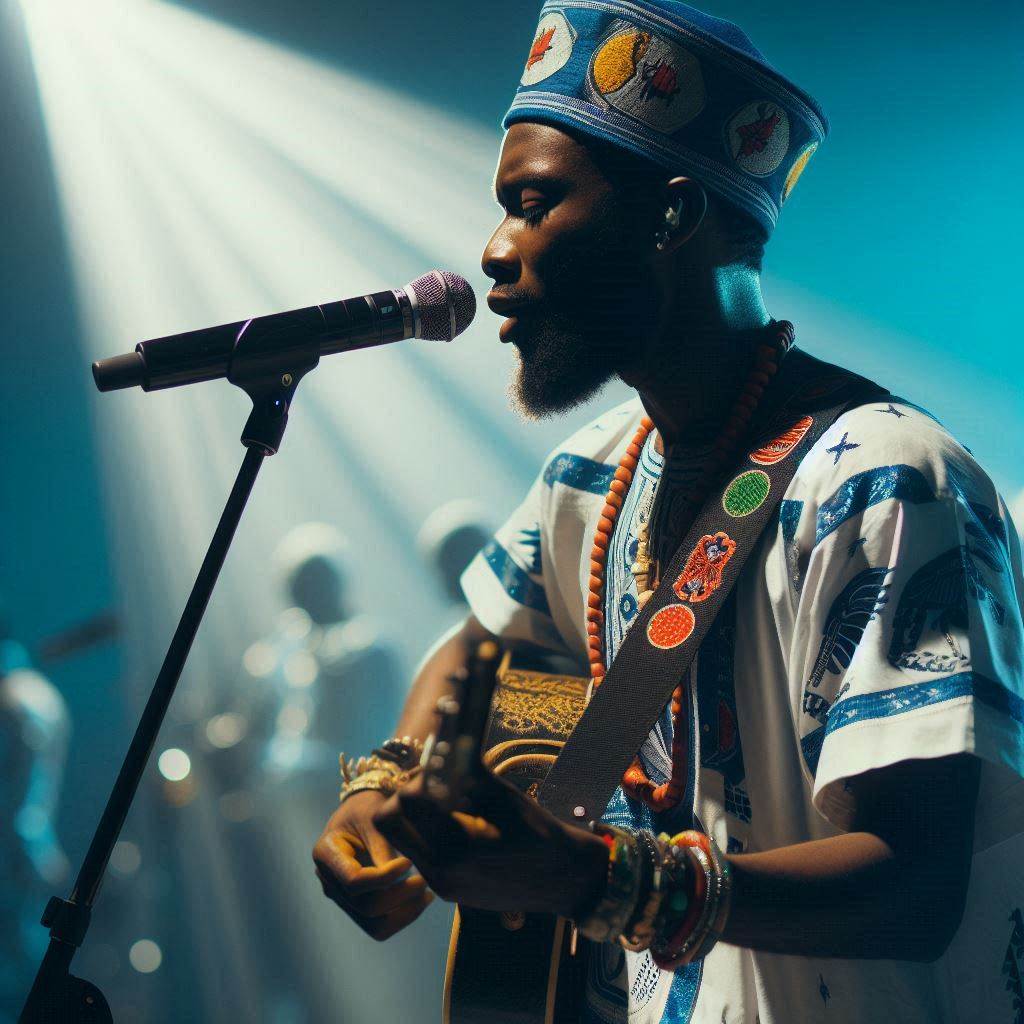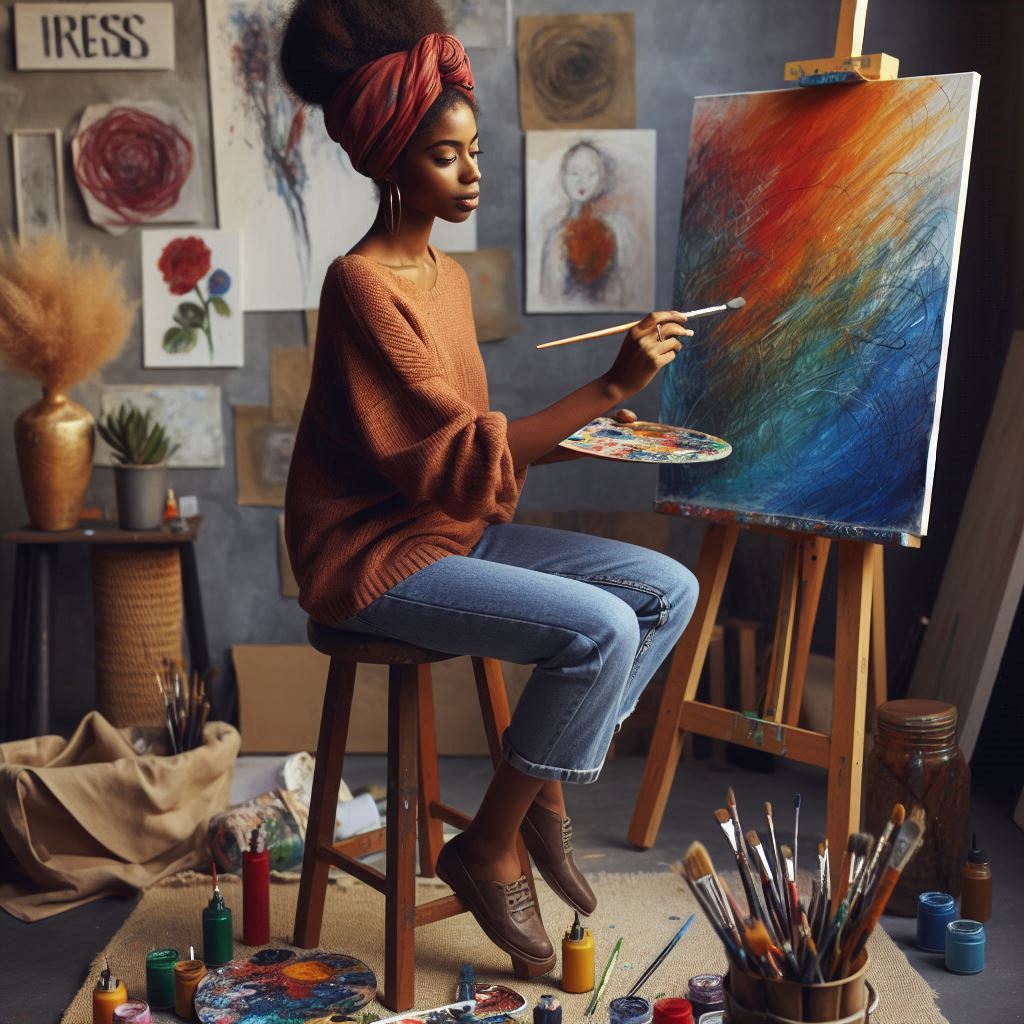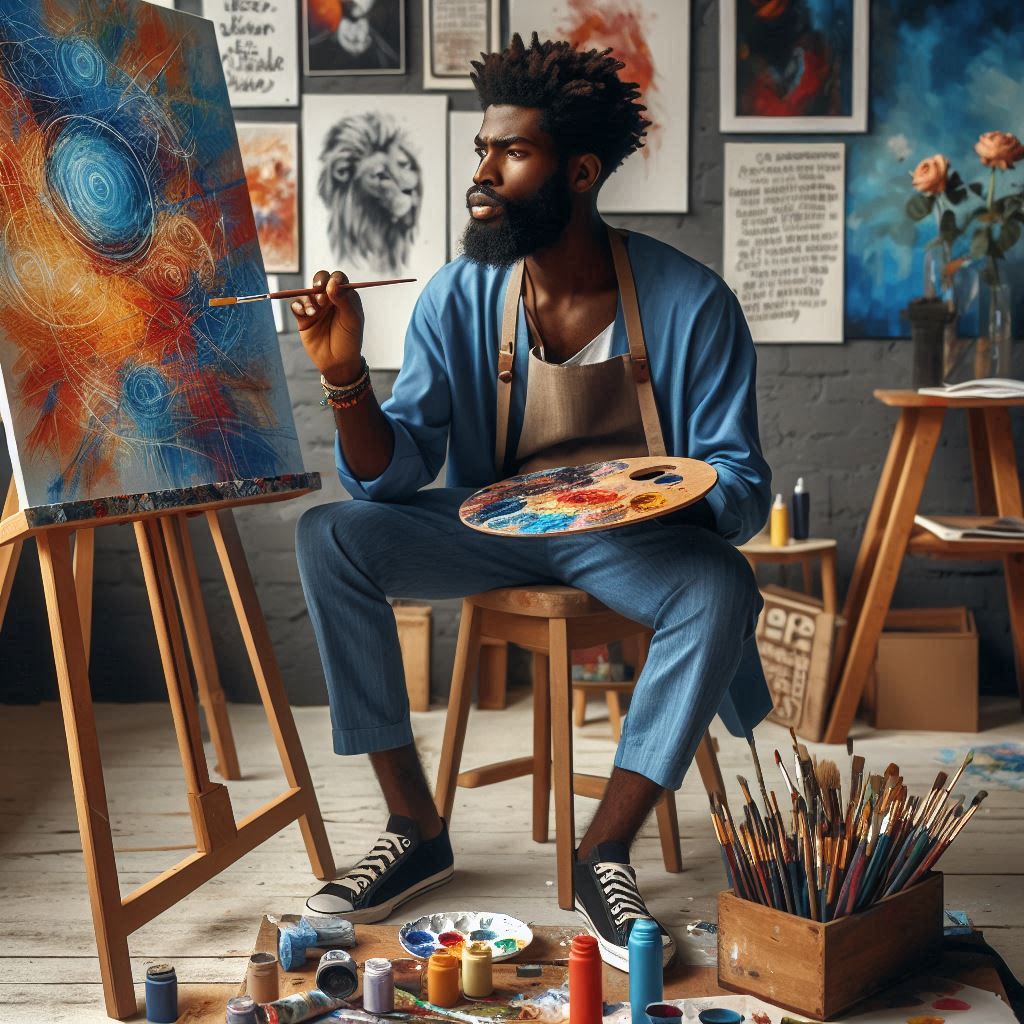Introduction
The current state of performing arts in Nigeria is a testament to the country’s rich cultural heritage.
From traditional dances and music to contemporary theater productions, Nigerian performing arts showcase a diverse tapestry of artistic expressions.
These forms of expression not only entertain but also serve as a means of preserving cultural traditions and fostering a sense of national identity.
Performing arts play a vital role in preserving Nigeria’s cultural heritage, as they serve as living embodiments of the country’s history, beliefs, and values.
They act as a bridge between generations, allowing for the transmission of cultural knowledge and traditions from one era to the next.
Additionally, performing arts contribute to the promotion of national identity by showcasing the unique cultural diversity that exists within Nigeria.
Transitioning into discussions about the future of performing arts in Nigeria, it is essential to consider the evolving landscape of the arts sector.
With advancements in technology and changes in societal norms, the way performing arts are created, consumed, and experienced is undergoing a transformation.
As Nigeria continues to develop economically and culturally, there are boundless opportunities for innovation and growth in the performing arts sector.
Challenges Facing the Performing Arts in Nigeria
The performing arts in Nigeria encounter numerous daunting challenges that impede their progress and evolution.
Lack of funding and support from government and private sector
Insufficient financial backing from both the government and private sector severely constrains the potential growth and sustainability of performing arts initiatives across the country.
Without adequate funding, many aspiring artists struggle to obtain resources for their projects, hindering their ability to fully realize their creative visions.
Moreover, the absence of consistent financial support limits the capacity of existing performing arts organizations to expand their reach and impact within the community.
To address this issue, it is imperative for government agencies and private entities to prioritize investment in the arts sector, recognizing its significant cultural and economic contributions to the nation.
Limited access to training and educational opportunities for aspiring artists
Access to quality training and educational resources remains a major challenge for aspiring artists in Nigeria.
Many talented individuals lack the means to pursue formal education or specialized training in performing arts due to financial constraints or the unavailability of programs in their vicinity.
This scarcity of educational opportunities not only stifles the development of emerging talents but also perpetuates inequalities within the arts community.
To address this issue, concerted efforts are needed to expand access to arts education and training programs, particularly in underserved areas.
Additionally, partnerships between educational institutions, arts organizations, and government agencies can facilitate the development of comprehensive training initiatives tailored to the needs of aspiring artists.
Infrastructure challenges such as lack of performance venues and facilities
The inadequate availability of suitable performance venues and facilities poses a significant obstacle to the growth and sustainability of the performing arts in Nigeria.
Many artists struggle to find appropriate spaces to showcase their work, leading to limited opportunities for public engagement and cultural exchange.
Additionally, the lack of well-equipped facilities hampers the production quality of performances and restricts the scope of artistic expression.
Addressing this challenge requires investment in the construction and renovation of performance venues, as well as the provision of essential technical equipment and amenities.
Furthermore, initiatives to promote the utilization of existing community spaces for artistic purposes can help alleviate the pressure on formal venues and foster a more inclusive and accessible arts scene.
Impact of social and economic factors on the growth of performing arts in Nigeria
Social and economic factors, such as poverty, inequality, and cultural attitudes towards the arts, profoundly influence the growth and development of the performing arts in Nigeria.
Economic disparities limit access to arts and cultural experiences for many individuals, particularly those from marginalized communities, perpetuating inequities in participation and representation within the sector.
Moreover, prevailing social norms and perceptions about the value of artistic pursuits often undermine efforts to promote the performing arts as viable career paths.
To overcome these challenges, comprehensive strategies that address systemic inequalities and promote cultural diversity and inclusion are essential.
By fostering an environment that values and supports artistic expression, Nigeria can unlock the full potential of its performing arts sector and enrich the cultural fabric of the nation.
Read: Renowned Nigerian Psychologists to Follow
Opportunities for Growth in Performing Arts
As the landscape of performing arts in Nigeria continues to evolve, there are several opportunities for growth and development that can propel the industry to new heights.
Here are some key areas where significant growth potential lies:
Increasing interest and participation in performing arts among the younger generation
The young population in Nigeria represents a major demographic segment that can drive the growth of the performing arts industry.
With the right encouragement and support, the interest and participation in performing arts among the younger generation can significantly contribute to the expansion of the sector.
Rise of digital platforms and social media for showcasing and promoting Nigerian talent
In today’s digital age, the use of online platforms and social media has become increasingly important for showcasing and promoting talent.
Nigerian artists and performers can leverage these digital tools to reach a wider audience both locally and internationally, opening up new opportunities for exposure and growth.
Potential for collaborations with international artists and organizations
Collaborations with international artists and organizations present an exciting opportunity for Nigerian performers to exchange ideas, learn new skills, and showcase their talents on a global stage.
These partnerships can help in fostering cross-cultural exchanges and expanding the reach of Nigerian performing arts to new audiences around the world.
Emerging trends in performance styles and genres
The dynamic nature of performing arts means that it is constantly evolving, with new trends and styles emerging all the time.
By staying attuned to these changing trends, Nigerian artists and performers can stay relevant and offer fresh, innovative performances that capture the interest of audiences both at home and abroad.
In essence, the future of performing arts in Nigeria holds promising opportunities for growth and expansion.
By tapping into the potential of the younger generation, leveraging digital platforms, fostering collaborations with international partners, and embracing emerging trends, the Nigerian performing arts industry can thrive and continue to make a significant impact on the global stage.
Read: Psychology and Counseling Services in Nigerian Schools
The Role of Education and Training
Importance of investing in arts education at all levels
Arts education plays a fundamental role in shaping the next generation of artists and performers.
By providing students with access to comprehensive arts education at all levels, from primary school to tertiary institutions, Nigeria can cultivate a pool of diverse and skilled talent.
Arts education not only equips students with technical skills but also fosters creativity, critical thinking, and cultural appreciation.
Through exposure to various art forms, students develop a deeper understanding of themselves and the world around them, laying a strong foundation for future artistic endeavors.
Need for mentorship programs and internships to nurture young talent
While formal education is essential, mentorship programs and internships offer invaluable opportunities for hands-on learning and professional development.
Young artists benefit greatly from the guidance and support of experienced mentors who can provide practical advice, constructive feedback, and networking opportunities.
Likewise, internships allow aspiring artists to gain firsthand experience in their chosen field, honing their skills and building confidence in a real-world setting.
By establishing robust mentorship programs and internship initiatives, Nigeria can empower young talent to realize their full potential and contribute meaningfully to the performing arts landscape.
Incorporating performing arts into school curricula to foster creativity and innovation
Integrating performing arts into school curricula is essential for nurturing creativity and innovation among students.
By incorporating elements of music, dance, theater, and other performing arts disciplines into academic coursework, schools can provide students with opportunities to explore their artistic interests and talents.
Engaging in performing arts activities not only enhances students’ creative skills but also promotes teamwork, communication, and problem-solving abilities.
Moreover, exposure to performing arts fosters cultural appreciation and empathy, helping students develop a broader perspective of the world.
By making performing arts an integral part of school curricula, Nigeria can foster a generation of well-rounded individuals equipped with the skills and mindset needed to thrive in a rapidly changing society.
Professional development opportunities for established artists to enhance their skills
Continued professional development is essential for established artists to stay relevant and continually enhance their skills.
Through workshops, masterclasses, and other training programs, artists can expand their knowledge, experiment with new techniques, and explore emerging trends in the performing arts industry.
Additionally, mentorship relationships with seasoned professionals provide valuable insights and guidance to navigate the complexities of the artistic world.
By investing in professional development opportunities for established artists, Nigeria can ensure the sustainability and vibrancy of its performing arts sector, fostering a thriving ecosystem where artists can flourish and inspire future generations.
Read: The Future of Psychology Education in Nigeria

Learn More: Top Careers in Translation and Interpretation in Nigeria
Find Out More: Technological Tools for Language Learning in Nigeria
Advocacy and Support for the Performing Arts
Importance of advocacy efforts to raise awareness and mobilize resources for the arts
Advocacy serves as a beacon, illuminating the intrinsic value and societal significance of the performing arts.
Through targeted campaigns and outreach initiatives, advocates raise awareness about the transformative power of the arts.
By engaging policymakers, philanthropists, and the public, advocacy efforts mobilize resources for the arts, securing essential funding.
Moreover, advocacy amplifies artists’ and arts organizations’ voices, ensuring their needs and contributions are recognized and valued.
Collaboration with government agencies, NGOs, and cultural institutions to promote the performing arts
Collaboration lies at the heart of advancing the performing arts agenda in Nigeria.
Forging partnerships with government agencies, NGOs, and cultural institutions allows advocates to promote the arts effectively.
Government agencies play a crucial role in formulating policies, allocating funding, and providing infrastructure support for the arts sector.
NGOs bring grassroots expertise, mobilize support, and advocate for the needs of artists and arts organizations.
Cultural institutions serve as hubs of creativity and innovation, providing platforms for artistic expression, audience engagement, and cultural exchange.
Together, these stakeholders can create an environment conducive to the thriving performing arts, benefiting artists and society.
Creating platforms for networking, collaboration, and exchange of ideas within the arts community
Creating vibrant, inclusive platforms for networking, collaboration, and idea exchange is essential for nurturing Nigeria’s dynamic arts community.
These platforms bring together artists, educators, policymakers, and arts enthusiasts to connect, share experiences, and collaborate on projects.
They provide opportunities for cross-disciplinary collaboration, enabling artists to explore new creative horizons and develop innovative works.
Additionally, they serve as forums for professional development, mentorship, and skill-building, empowering artists in a rapidly evolving arts landscape.
Fostering a culture of collaboration and knowledge-sharing contributes to the resilience and vitality of Nigeria’s performing arts ecosystem.
Support for initiatives that promote diversity, inclusion, and social change through the performing arts
Supporting initiatives that champion diversity, inclusion, and social change through performing arts fosters a more equitable society.
These initiatives use artistic expression to address social issues, challenge stereotypes, and promote dialogue and understanding.
They provide a platform for marginalized voices, amplify stories of resilience and empowerment, and inspire positive change.
Investing in initiatives that harness the transformative potential of performing arts builds a just, compassionate, culturally vibrant society.
Read: How to Start a Private Psychology Practice in Nigeria
Learn More: Contributions of Nigerian Women in the Arts
Gain More Insights: Role of Arts in Nigerian Education System
You Might Also Like: Global Partnerships in African and Asian Studies
Innovation and Technology in the Performing Arts
Potential for integrating technology into performances and productions
Technology plays a crucial role in shaping the future of performing arts in Nigeria.
With the rapid advancements in technology, there is a vast potential for integrating technology into performances and productions.
Artists and cultural practitioners can leverage virtual and augmented reality, live streaming, and digital platforms to reach broader audiences.
Use of virtual and augmented reality, live streaming, and digital platforms for reaching wider audiences
Virtual and augmented reality offer immersive experiences that can transport audiences to different worlds and enhance the overall performance.
By incorporating these technologies, artists can create innovative and interactive shows that push the boundaries of traditional art forms.
This opens up new possibilities for storytelling and audience engagement.
Opportunities for experimentation and interdisciplinary collaborations in the arts
Furthermore, live streaming increasingly dominates the performing arts, broadcasting performances globally in real-time.
This provides artists with the opportunity to showcase their work to a wider demographic and reach audiences beyond physical boundaries.
The accessibility and convenience of live streaming make it a valuable tool for expanding the reach of Nigerian performing arts.
Additionally, digital platforms have revolutionized the way audiences interact with art and artists.
These platforms serve as virtual spaces for showcasing performances, sharing artistic content, and engaging with fans.
Social media, streaming services, and online galleries offer artists opportunities to connect, collaborate, and build communities around their work.
Impact of technology on audience engagement, accessibility, and participation in the arts
Technology also allows for experimentation and interdisciplinary collaborations in the arts.
Merging various art forms like music, dance, theater, and visual arts creates unique, multi-sensory experiences for audiences.
Fusing technology with traditional art forms opens new avenues for exploration, fostering innovation and boundary-pushing performances.
Furthermore, technology has a significant impact on audience engagement, accessibility, and participation in the arts.
Through interactive digital experiences, audiences can actively participate in performances, workshops, and immersive installations.
Technology dismantles barriers, fostering inclusivity, and allowing diverse audiences to engage with the arts regardless of constraints.
Most importantly, technology is a powerful tool that has the potential to revolutionize the future of performing arts in Nigeria.
Embracing innovation and integrating technology expands artists’ reach, engages diverse audiences, and creates immersive experiences.
Endless possibilities await as technology integrates, opening new horizons for creativity and expression in Nigeria’s performing arts.
You Might Also Like: Top Nigerian Universities Offering Music Programs
Explore Further: Mass Communication Student Experiences in Nigeria
Delve into the Subject: Historical Research Methodologies in Nigeria
Delve into the Subject: Postgraduate Programs in Arabic Studies Nigeria
Conclusion
In closing , reflecting on the discourse about the future of performing arts in Nigeria, underscores the importance of collective effort.
Throughout this discussion, we emphasized the critical importance of stakeholders uniting to support and invest in the performing arts.
Government bodies, private enterprises, nonprofits, and art enthusiasts each play a vital role in fostering creativity.
This isn’t just about passive observation; it’s a call to action for stakeholders to contribute actively to Nigeria’s performing arts.
Provide financial support, advocate for arts-friendly policies, and create platforms for artists to showcase talents and exchange ideas.
Encourage artists to push boundaries, explore new possibilities, and contribute to Nigeria’s vibrant cultural landscape.
It is through their creativity, innovation, and dedication that the performing arts will continue to thrive and evolve.
In essence, let us collectively envision a future where the performing arts in Nigeria are celebrated, supported, and cherished.
Working together ensures preserving our cultural heritage and amplifying artists’ voices, inspiring future generations.




